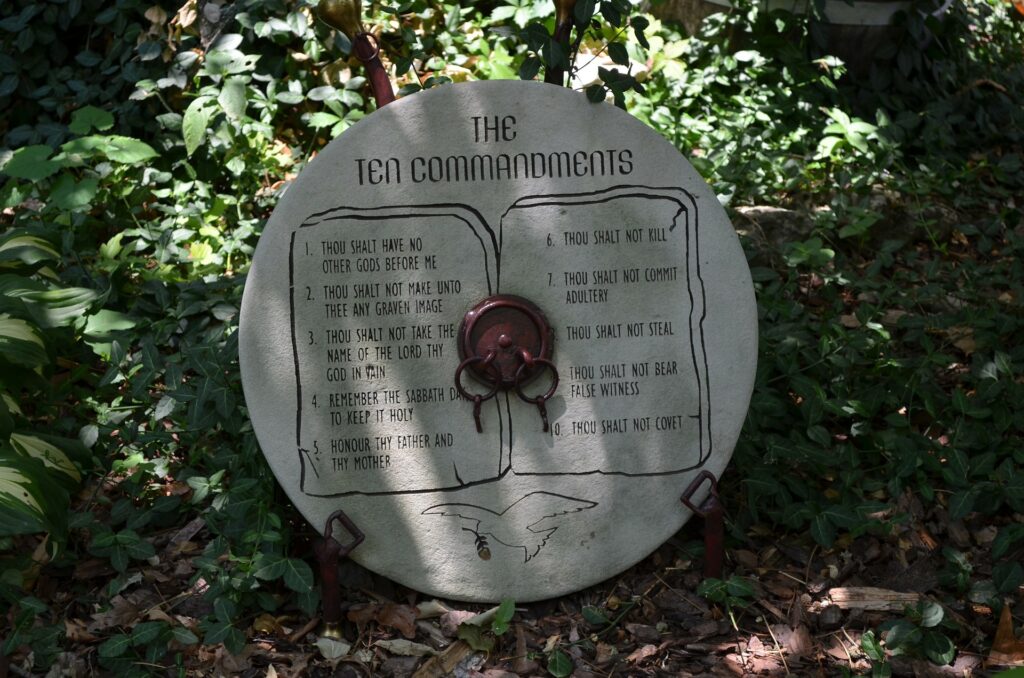One God
Author: Dr. Bob CaldwellWe believe in one God.
The Nicene Creed declares that we believe in one, and only one, God. We received this belief from the Jews through whom God revealed himself up to the coming of Jesus. The greatest verse in the Old Testament (OT) for the Jews was Deuteronomy 6:4 (ESV) Hear O Israel. The Lord our God, the Lord is one. To this day, this verse is declared in every Jewish worship service.
 Some of Israel’s neighbors believed that there were multiple, but competing gods. If they went into battle against another nation, they believed that the national gods were also doing battle. Whichever god won in the heavenly battle caused their nation on earth to win.
Some of Israel’s neighbors believed that there were multiple, but competing gods. If they went into battle against another nation, they believed that the national gods were also doing battle. Whichever god won in the heavenly battle caused their nation on earth to win.
For example, when Israel defeated Aram in battle, their leaders said that it was because Israel’s God ruled over the hills. Aram’s priests told the king to fight the next battle in the valley since their god would be stronger there. God said to Israel’s king, Because the Syrians have said, “The Lord is a god of the hills but he is not a god of the valleys,” therefore I will give all this great multitude into your hand, and you shall know that I am the Lord (1 Kings 20:28 ESV).
Several of the OT prophets mocked other nations who believed in multiple gods or in a different god: For they were no gods, but the work of men’s hands, wood and stone (Isaiah 37:19 ESV).
The New Testament (NT) teaches the same thing. Jesus quoted Deuteronomy 6:4. The apostle Paul wrote (an apostle is a church leader), For there is one God (1Timothy 2:5 ESV).
There were two reasons for including this statement in the creed. First, many of the people living near the early Christians believed in multiple gods. So did some of the Christians before they were converted. Second, because the church struggled to understand how it could be that Jesus was God (covered in a later article), many theories were offered. Some of these theories incorrectly divided the one God into two or three gods. This statement made it clear that those theories were incorrect.
There is only one God. Seek only him.
Note on the use of “LORD” in the Bible.
English Bibles use Lord (in small capital letters) through the Old Testament. This is the traditional way of expressing the name of God as given in the OT. When God instructed Moses to speak to Israel, Moses said that the people would ask the name of the God who sent him to them. God replied, YHWH, the God of your fathers, the God of Abraham, the God of Isaac, and the God of Jacob, has sent me to you. (Exodus 3:15 ESV).
YHWH are the Hebrew consonants (they didn’t write their vowels originally) used here and throughout the OT to identify the one true God. It was probably pronounced “Yahweh.” Because of language translations you will sometimes see it spelled “Jehovah.”
 Israel wanted to be serious about the commandment: You shall not take the name of the Lord your God in vain (Exodus 20:7 ESV). If you never say the name, you can’t misuse it. So they became overly careful and stopped saying the name aloud. Instead, they substituted the Hebrew word for “Lord,” which basically means, “master.”
Israel wanted to be serious about the commandment: You shall not take the name of the Lord your God in vain (Exodus 20:7 ESV). If you never say the name, you can’t misuse it. So they became overly careful and stopped saying the name aloud. Instead, they substituted the Hebrew word for “Lord,” which basically means, “master.”
The first translation of the OT into another language was called the Septuagint. It was completed in the 2nd century B.C. and translated into Greek. They consistently translated the Hebrew consonants YHWH as “kurios,” which is the Greek word for “Lord.”
That practice has been followed by most translators ever since. In English editions, the letters are written with one large capital letter and three smaller capital letters: Lord. This is to distinguish YHWH from the ordinary Hebrew word that means “Lord.”
With some exceptions, English-speaking Christians do not commonly use Yahweh or Jehovah to refer to God. Therefore, modern English translations of the Bible use the convention of “Lord.”
Bob Caldwell, PhD, is Theologian-in-Residence at Network 211.
